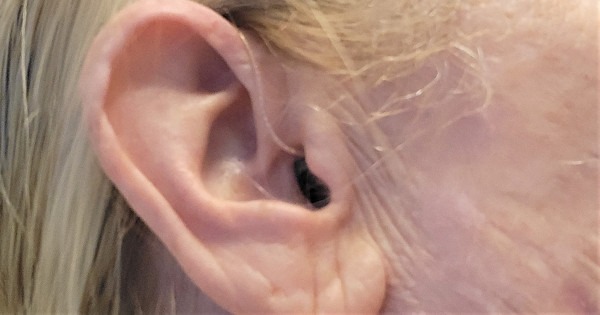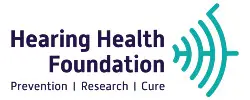Introduction
Otosclerosis. For many, this word might be an unfamiliar medical term, but for those living with this condition, it is a central part of their life. Otosclerosis, a condition that affects the bones in the ear, leading to progressive hearing loss, is a journey paved with both challenges and victories. This guide is written specifically for those living with otosclerosis and their caregivers, providing valuable insights into the various coping strategies and support systems that can help navigate this journey more smoothly.
Living with otosclerosis is not just about managing the physical symptoms of the condition. The psychological and emotional aspects of coping with hearing loss can be equally, if not more, challenging. From the frustration of missed conversations to the fear of progressive hearing loss, the emotional toll of otosclerosis can be significant. However, it’s important to remember that you are not alone on this journey. There are many resources, both offline and online, that can provide the support and connection you need.
In this comprehensive guide, we will delve into various aspects of coping and support for individuals living with otosclerosis. We will explore the role of support groups, the importance of mental health, the significance of a supportive environment, resources for families, and the potential benefits of online communities. Our aim is to empower you with the knowledge and resources to make your otosclerosis journey as manageable, and fulfilling, as possible.
Our exploration of these facets is not just about providing information. It’s about offering a supportive hand to those living with otosclerosis. It’s about creating a community of understanding and compassion. It’s about reminding you that in this journey of otosclerosis, you are not alone.
AMZ-Lexie Lumen Self-Fitting OTC Hearing Aids
Experience the Ultimate Sound Quality with Lexie Lumen self-fitting OTC hearing aids. These remarkable devices utilize dual microphones to deliver crystal clear sound, immersing you in a world of auditory excellence. Say goodbye to communication struggles in public spaces or on phone calls, as our Telecoil functionality directs speech directly to your hearing aids via an induction loop system. Rediscover the joy of hearing with unmatched clarity and precision.
Embrace an Active Lifestyle with Lexie Lumen hearing aids. Our cutting-edge sweatproof technology, including Nano coating, safeguards against moisture damage, allowing you to wear your hearing aids during outdoor activities like walks, runs, and open-air events. With Lexie, you can live life to the fullest without compromising on the quality or lifespan of your devices. Don’t let hearing loss hold you back—experience the freedom of superior hearing with Lexie Lumen self-fitting OTC hearing aids.
Coping and Support
The journey of living with otosclerosis can feel overwhelming at times. But remember, you don’t have to walk this path alone. A support system comprising understanding family members, empathetic friends, and experienced healthcare professionals can make a world of difference. Beyond that, learning about your condition, keeping open lines of communication, and maintaining a positive attitude are critical coping strategies1.
Being proactive about your health is essential. Regular hearing check-ups, staying informed about the latest treatments, and keeping your healthcare provider informed about any changes in your symptoms can help manage the condition effectively. Engaging in physical activities, enjoying hobbies, and maintaining social connections can also promote a sense of well-being and counter the feelings of isolation that may sometimes accompany otosclerosis2.
Support Groups for Otosclerosis A Helpful Resource
Support groups offer a unique platform for individuals with otosclerosis and their caregivers to share experiences, exchange coping strategies, and provide mutual encouragement. Meeting others who understand your journey can be incredibly validating and comforting. Many national and local organizations offer support groups for those affected by otosclerosis and
Footnotes
Mental Health and Coping with Otosclerosis
Navigating the path of otosclerosis can take a toll on your mental health. This isn’t surprising considering the significant impact hearing loss can have on your communication, relationships, and quality of life. Depression, anxiety, and increased stress levels are not uncommon among individuals with hearing disorders1.
For this reason, mental health care is a crucial component of coping with otosclerosis. Psychotherapy or counselling can provide the necessary tools to manage stress and adjust to life with hearing loss. Techniques such as mindfulness, cognitive-behavioural therapy (CBT), and stress management can all play a beneficial role2. It’s important to seek professional help if you find yourself struggling with feelings of sadness, hopelessness, or heightened anxiety.
Creating a Supportive Environment for Individuals with Otosclerosis
Living with otosclerosis involves adjustments, not just for the individual, but for the entire family. Creating a supportive environment is a collaborative effort that can make a significant difference in managing this condition. This involves understanding the needs of the individual, promoting clear communication, and making necessary adaptations at home and work.
Understanding and empathy go a long way in building a supportive environment. Open and frank conversations about the challenges of otosclerosis can foster better understanding and mutual respect among family members. Visual cues and gestures, reducing background noise, and facing the person while speaking can aid in communication3.
Additionally, assistive listening devices, alerting devices, and other hearing aids can greatly improve the quality of life for individuals with otosclerosis4. Education and awareness are key in this process – the more informed the family and community are about otosclerosis, the more supportive the environment becomes.
Tinnitus: The Truth Behind That Annoying Ringing in Your Ears
Resources for Families Living with Otosclerosis
Several resources are available to help families understand and manage otosclerosis more effectively. This includes educational materials, workshops, counselling services, and financial aid programs. Organisations like the American Speech-Language-Hearing Association (ASHA), American Academy of Otolaryngology-Head and Neck Surgery (AAO-HNS), and Better Hearing Institute provide a wealth of information and resources related to otosclerosis5.
Counselling services can be particularly helpful for families to deal with the emotional aspects of otosclerosis. They can provide strategies to enhance communication and improve relationships. In addition, many hearing aid manufacturers and nonprofit organizations offer financial assistance programs to help cover the cost of hearing aids and other assistive listening devices6.
CBD for Tinnitus: Can It Stop the Ringing?
Online Communities for Otosclerosis Finding Connection and Support
In the digital age, online communities have emerged as a valuable resource for individuals living with conditions like otosclerosis. These virtual platforms allow you to connect with others who understand your experiences, exchange coping strategies, and find solace in shared experiences.
Social media platforms, online forums, and specialized websites host numerous online communities for individuals with otosclerosis and their caregivers. These platforms can provide you with access to a vast array of resources, including educational articles, research updates, personal stories
Footnotes
One such online community is the ‘Otosclerosis and Stapedectomy Support Group’ on Facebook2. Here, members share their experiences with diagnosis, treatment options, and post-operative care. They also provide emotional support and encouragement to fellow members, making it a compassionate and understanding community for anyone dealing with otosclerosis.
In conclusion, the journey of otosclerosis is undoubtedly challenging, but with the right resources, coping strategies, and support systems in place, it becomes a path you can tread confidently. As we explored in this guide, support groups, both in-person and online, offer a platform to connect with others who understand your journey. The importance of mental health in coping with otosclerosis cannot be overstated, and creating a supportive environment is crucial for managing this condition effectively. With resources available to families, they can become better equipped to provide the necessary support and understanding.
Navigating otosclerosis is not a solitary journey. By reaching out and connecting with others, you can find comfort, encouragement, and even inspiration. Above all, remember that while otosclerosis may be a part of your life, it does not define you. You are more than your condition, and with the right support and resources, you can lead a fulfilling, empowering life.
We hope that this comprehensive guide serves as a resource in your journey with otosclerosis, providing the necessary information, resources, and encouragement to make the path easier to navigate. Remember, you are not alone on this journey. You are part of a community that understands, supports, and empowers you. Together, we can make a difference.

Unheard Voices, Unseen Progress: The Unfolding Landscape of Otosclerosis Research and Rehabilitation
Introduction In the quiet corners of life, in the unseen spaces, a transformation is taking

Gazing Into The Crystal Ball: The Future of Otosclerosis Research and Treatment
Introduction In the quiet corners of audiology clinics and bustling research laboratories worldwide, a profound






